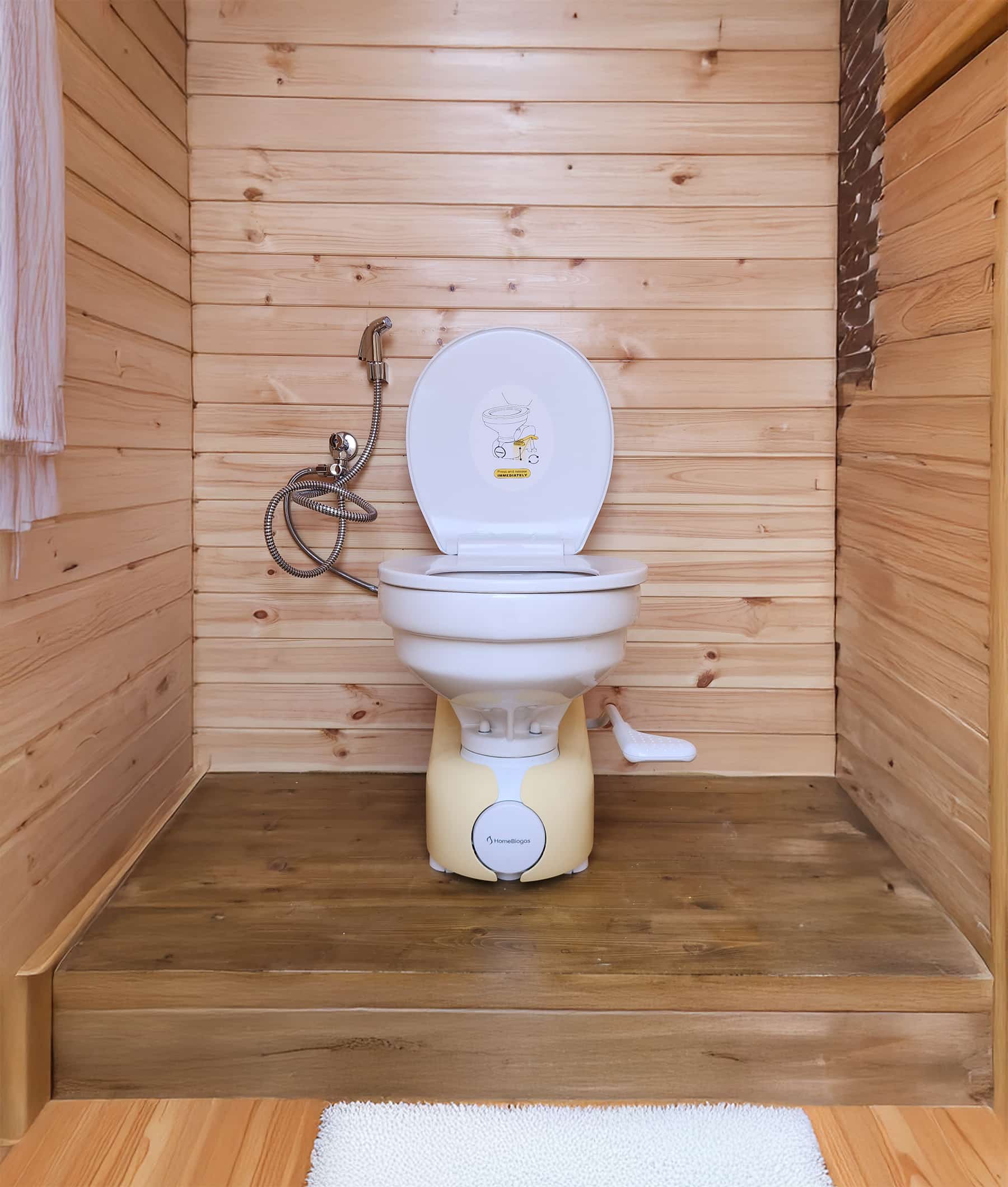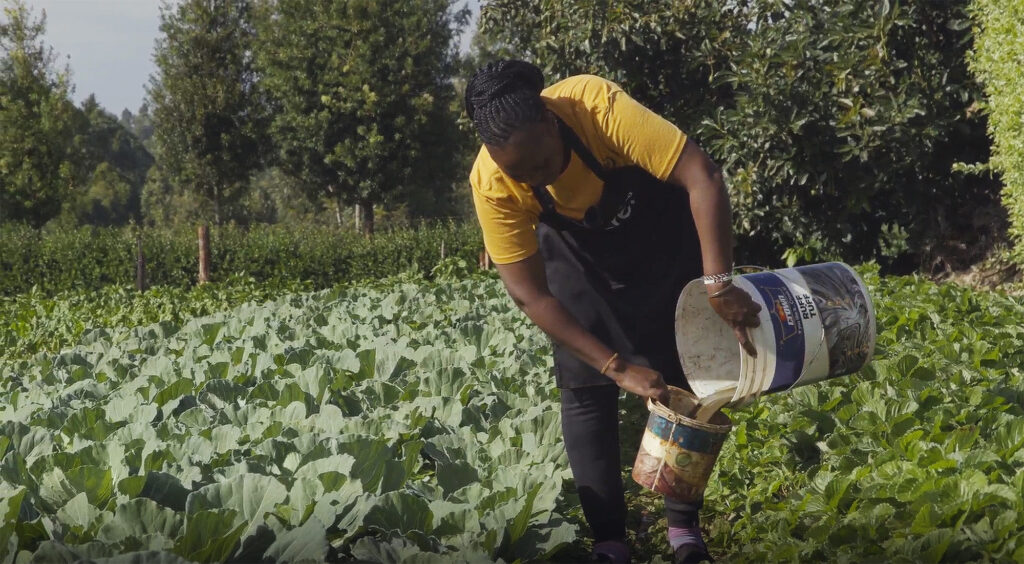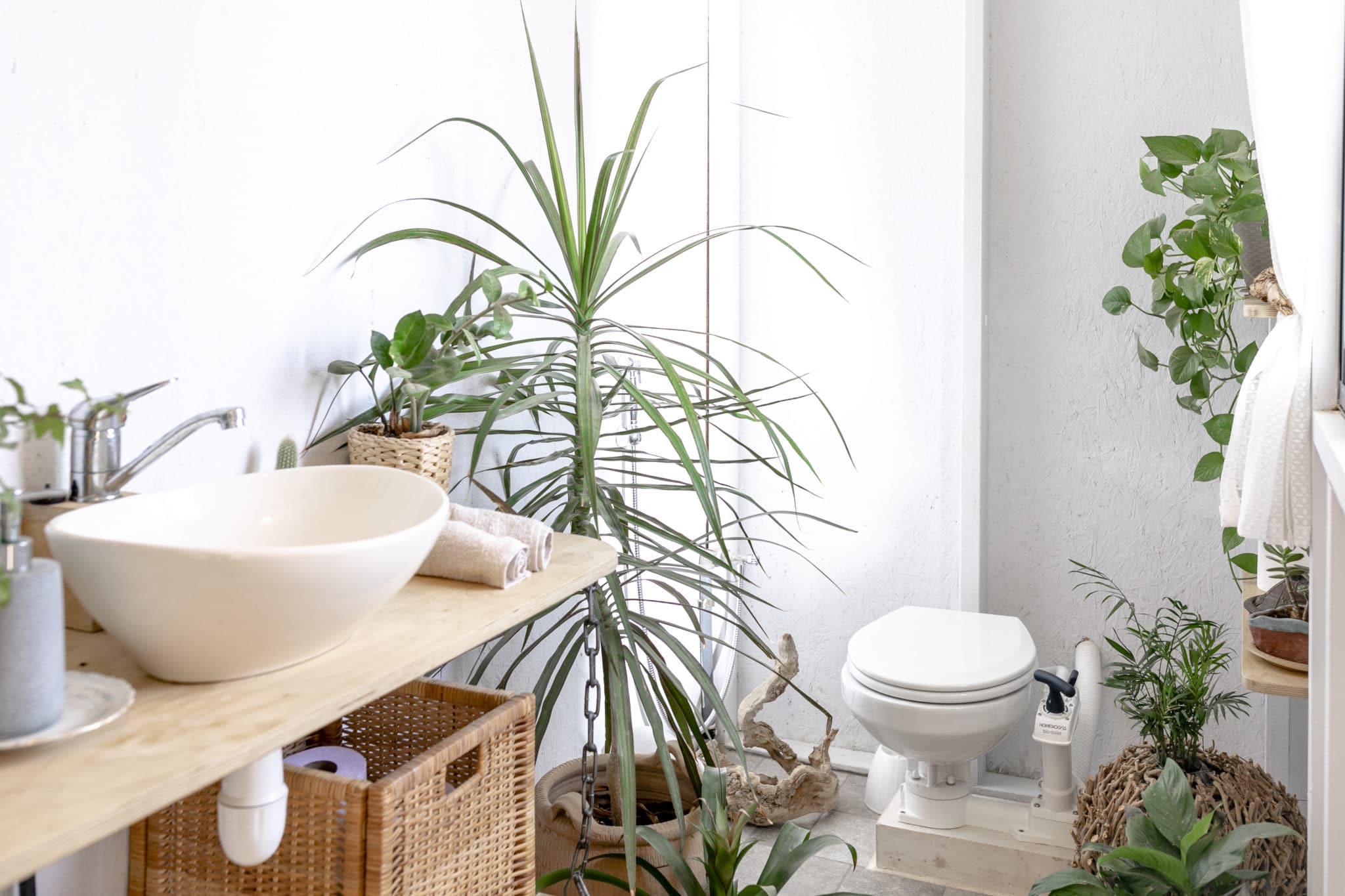
THE NEW BIO-TOILET: A BLOGGER’S REVIEW
This week I had the pleasure of visiting HomeBiogas to check out their newest accessory: the Bio-Toilet.
The Bio-Toilet connects to the HomeBiogas system, which is an off-grid appliance that turns organic waste into cooking gas. The main appliance- the HomeBiogas system- takes waste such as food scraps and animal manure and using a biological process, turns that into gas.
Now, I hate chemicals and toxins, so when I say biological process I mean that’s 100% a process that is constantly happening in nature all around us. (If you’re interested in more details, look up anaerobic digestion, which is the scientific name for the process that HomeBiogas uses.)
The new Bio-Toilet, therefore, adds human waste (or humanure, as permaculturists may know it as) and uses that as an additional resource to generate the cooking gas.
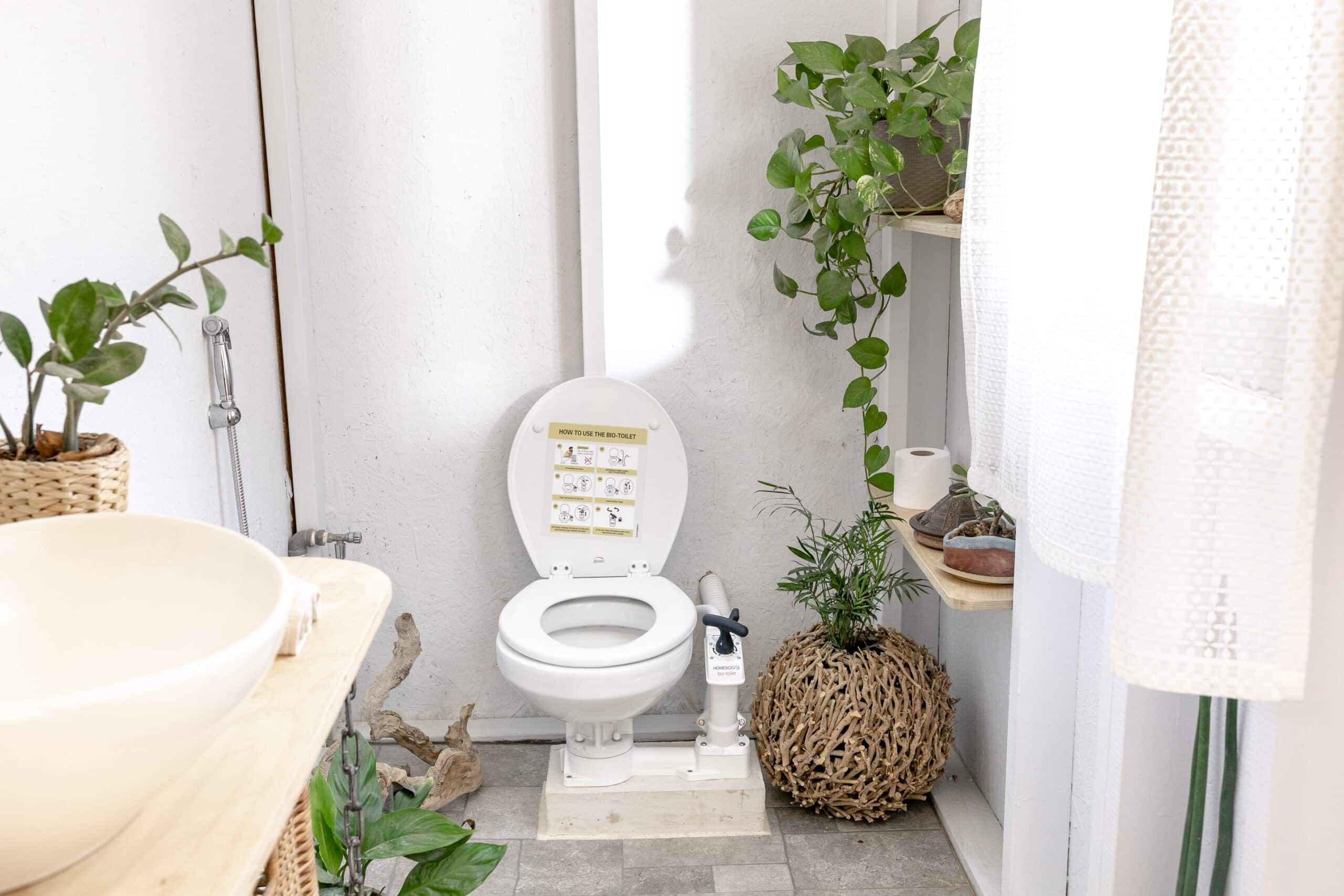
I LOVED USING THE BIO-TOILET FOR SEVERAL REASONS
1. It looks just like a regular toilet, so when the in-laws come to visit, they won’t have to deal with some eco freako situation.
2. It can work either in an outhouse or inside of a home.
3. Once you’ve set up the system, you don’t have to deal with your waste at all. An outlet pipe can connect the effluent directly to a sewage system, septic tank, or a drainage field. In my opinion, dealing with effluent is the biggest shortcoming of standard compost toilets. Like no, I don’t want to drain leachate with my morning cup of coffee, thanks. And let’s just say I’ve had leachette splatter on my face once too many times.
4. You can use grey water to fill up the water in the toilet. This is amazing, because pooping into drinkable water is a shame on western civilization, and is offensive to all those who die from a lack of clean water.
5. It generates energy!!
6. The Bio-Toilet also uses only 1.2 liters of water per flush, as compared to regular toilets which use 7-9 liters of water!
The mechanical hand-pump that fills up water into the toilet does take a few moments of pumping, but I think its important for us to have direct contact with these things, and exert some energy sometimes. Our current household practices where water just magically appears makes us dull to the reality that water is a scarce resource. So I personally don’t mind the pumping at all. For those who aren’t into it, you can also just dump a bucket of water right into the toilet instead.
The system comes stocked with pretty much all the parts of the puzzle; is packaged in two small boxes; and a manual walks you step-by-step through the process of constructing it.
The DIY set up has pros and cons. Pros: it’s a learning experience for both kids and adults. Cons: It’s a good half-day’s work to set it up. Pros: You get to brag to your friends that you set it up all by yourself! Cons: You may have to call up a few friends and bribe them to help you out…
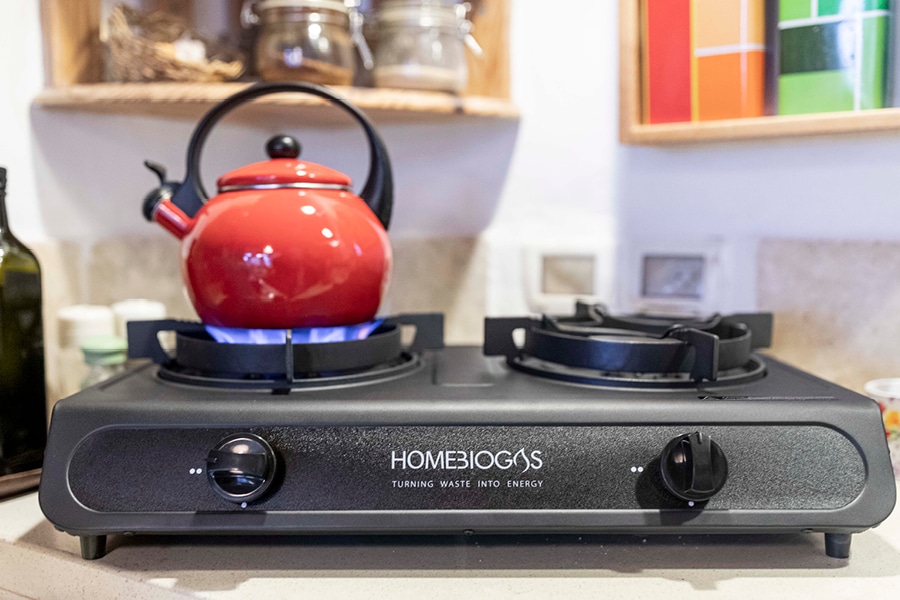
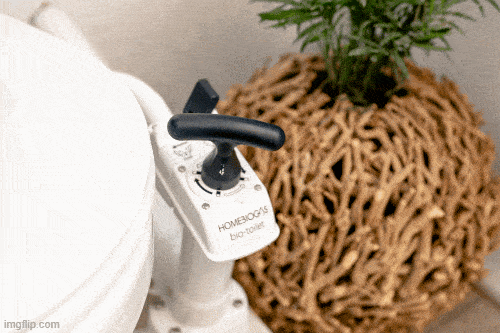
THE BIO-TOILET IS AN INCREDIBLE USE OF SUSTAINABLE TECHNOLOGY
Obviously, this is incredible for refugee camps where sanitation and energy are scarce. But I also think that more “typical western families” should be adopting this type of technology as well. We’re entering an era where our planet just cannot afford to keep going in the linear (extraction -> use -> landfill) method anymore. We just don’t have enough resources to keep digging from the earth and not give anything back. This closed-loop system is exactly representative of the kind of technologies we need to adopt if we’re going to keep living happily on this planet. What’s really great about the Bio-Toilet and the HomeBiogas system is that it makes sustainable living so easy. HomeBiogas have perfected the concept of user-experience. So you don’t need to be an earthy hippy to enjoy their products- they’re made for any type of family.
Final note: I do think this product is better for families than for individuals, because you do need a nice amount of waste to produce a strong and steady flame for cooking. Then again, individuals can also ask their neighbor for some extra food scraps… or they could invite the neighbor to use the Bio-Toilet once in a while.
Cooking food on renewable energy is a unique experience. To know that your meal was made sustainably is exhilarating. Hopefully one day all of our meals will be #renewable.

